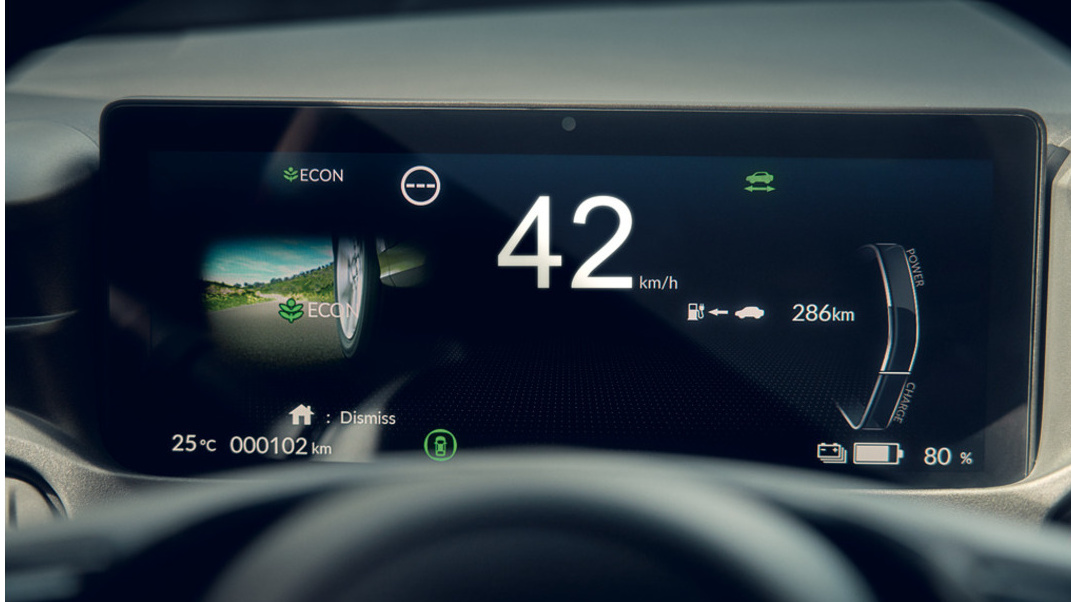
In the UK & EU, it will soon become illegal to sell new cars that are powered by fossil fuels, with rules coming into place between 2030 and 2035. Buying an electric car now is, therefore, a good investment for the future. The benefits of electric cars are numerous, making them an attractive choice for many. From their environmental impact to cost savings, the advantages of electric vehicles are hard to ignore. But like any choice, there are both pros and cons of electric cars. Let's explore.
Advantages of Electric Cars
Energy efficiency
Electric cars boast an impressive 85%-90% energy efficiency. In contrast, traditional vehicles with combustion engines are hovering around the 20% mark. So, not only do electric vehicles use less energy, but they also produce fewer CO2 emissions.

Zero emissions
EVs are classed as zero-emission vehicles, which means they do not emit any CO2 or other harmful gases into the atmosphere. While there are some emissions associated with the generation of electricity required to charge them, these are significantly lower than those associated with producing and running vehicles with combustion engines.
Save money on fuel
While charging prices vary across Europe, it is more than 70% cheaper to run an EV than a petrol or diesel car. The cheapest country for EV charging is the Netherlands at just €0.05 / kWh. Even in Denmark, one of the most expensive European countries in which to run an electric vehicle, you can still get 100 km of charge for around €8.11.
Less noise pollution
Unlike fuel-powered vehicles, EVs only make noise due to wind resistance or traction from tyres. In fact, to help pedestrian safety, legislation requires all-electric cars to make a minimum of 56 decibels of noise when in operation. Despite this, they are still far quieter than the noise produced by traditional vehicles.

Less maintenance required
Owners of EVs will usually find that their ongoing maintenance costs are significantly lower. While electric vehicles still require servicing and MOTs, they have fewer parts and are therefore usually cheaper to maintain.
The only significant cost associated with maintaining an electric vehicle is battery replacement. The good news here is that EV batteries are built to last, and most new EV purchases will come with a lengthy warranty from the manufacturer to cover this cost should it arise early.
Easy to drive
Driving an electric vehicle is no different, especially if you're familiar with automatic cars. Just like in the Honda e:Ny1, there's no need for gear changes or clutches. Simply use the accelerator and brake, and you're good to go.
With features like single-pedal control, city driving becomes even more effortless. Adjusting the pressure on the accelerator lets you control the car's speed, often without even needing the brake. It's a driving experience that's not only simpler but also more intuitive.
Disadvantages of Electric Cars
Cost to buy?
It is still typically more expensive to buy an electric car than it is to purchase a fuel-powered vehicle. Though this is true, most of this initial cost will be offset when factoring in things such as running costs, maintenance and longevity. With new legislation coming in shortly meaning there will be no more new fuel-powered vehicles being manufactured, the initial cost of buying electric will naturally drop as manufacturers switch production methods.
Shorter range?
Range anxiety is noted as one of the biggest disadvantages of buying electric cars by potential owners, according to many surveys. However, this is beginning to change. The average fuel-powered car has a range of around 480 km on a full tank, whereas many modern electric vehicles now have a range of between 200 to 490 km on a full charge.
There are also hundreds of thousands more EV charging stations being created each year globally, meaning the distance between one charging point and the next will become shorter. With the average driver travelling no more than 40-90 km each day, range anxiety is a thing of the past.
Long charging time?
Electric cars take a lot longer to move from empty to full than their fuel-powered counterparts. On average, it takes around eight hours to fully charge a flat EV battery*. This is based on a typical 7kWh charger, which is what you will most likely opt for if you install one at home.
However, it is rarely necessary to make a full charge. Most EV drivers will top up whenever and wherever is convenient, from overnight at home to making a quick rest stop at the services on a long drive. When using a rapid charger, you can add around 100km of range in as little as half an hour.
Lack of charging points?
There are currently almost 375,000 public electric vehicle charging points across Europe, with more planned in most countries over the coming years, as EVs rise in popularity. A recent report from Reuters suggests that there will need to be approximately nine million more public chargers installed across Europe by 2035 to keep up with increasing demand.
EV manufacturing emissions?
Some potential disadvantages of electric cars to the environment are the emissions caused by the manufacture of the vehicles themselves, the lack of battery recycling and the materials used in battery manufacture. However, most emissions produced during manufacturing are offset by the far lower emissions caused throughout the lifespan of each vehicle produced.
FAQs
Is it worth getting an electric car now?
Yes. By 2035, legislation means there will be no new fossil-fuel-powered cars on the market in Europe. This factor, coupled with decreasing costs for battery production and general EV manufacture, means that there are fewer and fewer reasons to purchase a petrol or diesel vehicle now.
Do electric cars lose value quickly?
Electric vehicles are built to last, which means most models will hold their value just as well or even better than petrol or diesel vehicles. On average, electric cars tend to have a depreciation rate of about 50% over three years. This rate is comparable to, and in some cases better than, petrol or diesel cars.
Do electric cars break down more often?
It is a commonly held myth that electric cars break down more frequently than their fuel-powered counterparts. In fact, with fewer moving parts, electric vehicles are less likely to experience performance or maintenance issues.
How long does an EV battery last?
The average lifespan of an electric vehicle battery is a decade, although many will last as long as twice that. When you compare that to the average time people typically keep one car, which is approximately six years, there is nothing to worry about in terms of EV battery life for new car purchasers.
*You can only charge a vehicle’s battery at the maximum charge rate the vehicle can accept. For example, if your vehicle’s max charge rate is 7kW, you won’t charge any faster by using a 22kW charge point. The time it takes to charge will also be limited by the max charging rate of the charge point you are using. For example, even if your vehicle can charge at 11kW, it will only charge at 7kW on a 7kW charge point.


